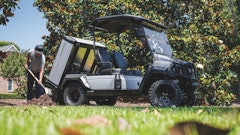
Landscape contractor Darrick Stirling faced a choice. The company he'd owned and operated since 2001—Stirling Lawn & Landscape in Pleasant Hill, MO—was growing like crazy, just as he'd hoped it would. The problem was that the demands of managing a rapidly growing company were driving Stirling a little crazy in the process.
"We had a couple of explosive growth years in particular, especially in 2010," Stirling recalls. "Without good systems and structure, it can become burdensome. I was about ready to just scale back to a couple crews and start making my customers and employees happy again, and start making money again. I had tried to develop some systems of my own, but they just weren't working."
Additionally, Stirling wanted more growth in the commercial landscape management market. He determined that aligning with a well-known brand name like U.S. Lawns would put him in the best position to achieve that.
So Stirling decided to become a U.S. Lawns franchise in early 2012. Stirling Lawn & Landscape would now be doing business as U.S. Lawns in Kansas City. Stirling co-owns the franchise with his wife, Melinda. Shawn Shelton serves as general manager.
How franchising has helped
Since Stirling was already operating a landscape company, he simply had to "convert" to U.S. Lawns. Generally speaking, this requires significantly less investment than starting from scratch. Stirling retained his existing customers. He also had some equipment and office supplies that allowed him to hit the ground running.
Hit the ground running he did. "U.S. Lawns provides so many great systems," Stirling says. "In that first year, I focused on the 10 or 20% I thought were the most important for me. U.S. Lawns provides great flexibility that way. So I focused on marketing and sales, employee training and equipment fleet management."
Having the U.S. Lawns name stamped on his business immediately helped open doors to new commercial accounts. Stirling also reaped immediate benefits from the 30-plus purchasing-partner agreements U.S. Lawns has.
"U.S. Lawns franchisees are not forced to use specific equipment and products, but I kept an open mind to take advantage of whatever I could," Stirling says. Years ago he'd owned Stirling Power Equipment, an equipment dealership in Harrison, MO. So he had long been a bit of an equipment junkie, and had grown uniquely intrigued by one brand in particular.
"One of the mower manufacturers U.S. Lawns has a relationship with is John Deere," Stirling points out. "I tested one of their zero-turn mowers last year and really liked it. So I bought five. The pricing was incredible. I've always liked Exmark too, but there isn't a strong dealer locally. The dealer is just as important as the equipment itself—especially when you're running a large, growing company like ours. Fast service and parts, demos and loaner units are all really important."
Products such as fertilizer, seed and pesticides also come into play. "Before converting to U.S. Lawns, I'd always shopped at John Deere Landscapes," Stirling says. "We got good discounts, but had to buy pallets of materials at a time. Now I can just stop in to pick up what we need for the day, but we get the same great pricing. This is huge for me because we run a tight operation and don't have a very large facility to store lots of inventory."
Life as a U.S. Lawns franchisee has been great, Stirling says, and is only getting better. Earlier this year he purchased another open territory, U.S. Lawns in Overland Park, on the Kansas side of Kansas City. With the support of U.S. Lawns, Stirling says he has the right systems and processes in place to make explosive growth a little more manageable this time around.
"In 2010 we were doing just over a million, but I couldn't handle it," Stirling says. "Now I feel like we can grow to $2 million and still feel comfortable. So our investment in the U.S. Lawns system, next to our employees, is about the best we've ever made. It's really about the systems they provide. I probably could have developed them on my own—if I just locked myself in a closet for two months and did nothing but work on them. But who has time for that when you're running a growing company?"



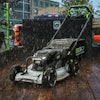
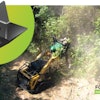

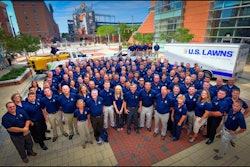
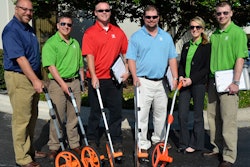










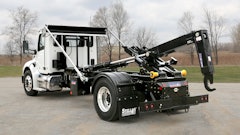
![Gravely Pro Turn Mach One My23 Dsc03139 Edit 1200x800 5b2df79[1]](https://img.greenindustrypros.com/mindful/acbm/workspaces/default/uploads/2025/10/gravely-pro-turn-mach-one-my23-dsc03139-edit-1200x800-5b2df791.BucBnDoN22.jpg?ar=16%3A9&auto=format%2Ccompress&fit=crop&h=135&q=70&w=240)

